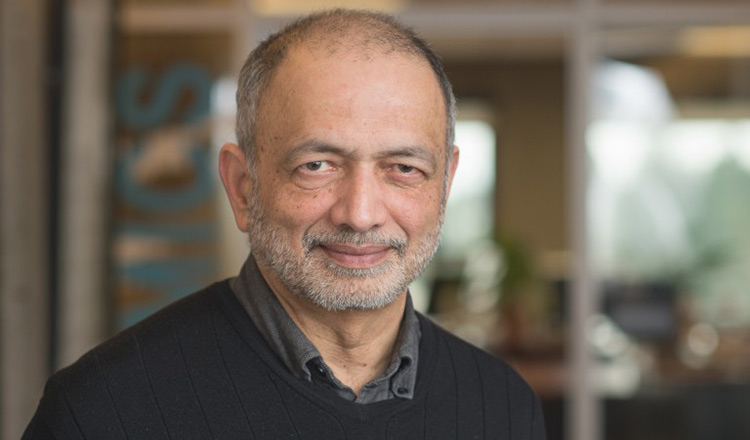

By Bryan Zandberg
Professor Ashok Kotwal’s career in economics has focused on the problems of absolute poverty and the inequality of incomes. His most current research has centered on the impacts of the recent economic reforms in India.
Professor Kotwal still remembers what induced him to become a development economist, even though that journey started three decades ago. Like many of his friends, Kotwal had recently emigrated from India to the United States working as an electrical engineer in the computer industry around Boston. Five years into his new life in Boston, however, he says he was still thinking of life back in Bombay. “There were people [in India] far smarter than I was, and just because I happened to be in the US, I had a much better standard of living and far fewer constraints on my freedom than they did.”
Kotwal’s Journey: Ethics and Economics
Casting about for what he could do about the disparity, Kotwal says his mind kept turning to his politically engaged family, and especially to his brother-in-law, who taught economics at a college, but spent most of the time working in the slums of Bombay. He decided to study economics to understand better what kept some countries poor. A doctoral degree from Boston University and nearly 30 years at UBC later, Kotwal has a distinguished career in development economics. Though applicable across borders and cultures, much of his research has focused on the problems of development within the Indian experience.
The West, he notes, is well aware that the world’s two most populous nations — China and India — are rising. However, fewer people know the story of the effect of the massive economic changes for the poor in these countries. “They’re both growing fast over the last 20 years, but what’s happening in China is much different than what’s happening in India,” Kotwal says. While absolute poverty has fallen dramatically in China, it has been much less so in India. Twenty-five per cent of the population, or approximately 250 million people — that is, about eight times the population of Canada — still live on less than one dollar a day, Kotwal explains.
Unearthing the causes of that dynamic — why wealth in India fails to trickle down — is the subject of his recent study conducted jointly with colleague Mukesh Eswaran and two scholars from India. Organizational structures and institutions, labour and credit markets, social capital, and the interaction between agriculture and industry are some of the topics he researched. His book Why Poverty Persists in India, published in 1994, and a significant part of his research in development economics was done jointly with Mukesh Eswaran.
Tied to his academic inquiries is a deep desire for his work to be applicable. In fact, some of the research questions he studies are generated from NGOs working in India. “They want something concrete, and not just academic abracadabra,” Kotwal says.
Teaching About Poverty
But when you’re dealing with a problem as pervasive as the causes of a sub-continent’s poverty, questions can be more forthcoming than answers, he admits. “Sometimes it’s frustrating to students,” Kotwal says. “They say, ‘If you don’t know, nobody knows. Then why should we study it?’”
Perplexing as poverty may be sometimes, the journey of economic development around the world means the work never gets dull. Neither do Kotwal’s first-hand stories. To teach, he draws from his front-line research in India to talk to students about economic development, international development and other world issues. He also teaches a second-year course called “Understanding Globalization.”
“I came into economics quite late,” he says.
“Basically I ended up doing research on the real questions that motivated me.”

